When choosing a vehicle, motorists are trying to take into account different factors: power, load capacity, comfort. However, there is another important feature - the type of fuel that consumes the car. The cost of further maintenance and its types, as well as methods of operation of the car and the nature of its behavior depends on this characteristic. Most vehicles come out with conveyors of autocontracens with diesel or gasoline engines. Not many modern manufacturers put gas installations as a regular fuel system. In this article, we will look at the shortcomings and advantages of HBO (i.e. gas-plane equipment) and we will try to find out what is better for the power unit: gas or gasoline.
Content
Gasoline engine car
The basis of the principle of operation of any gasoline engine is the ignition of high-energy fuel in a closed space.
Consider the main components of the injection force unit:
- Cylinder block.
- Pistons.
- Crankshaft.
- Cylinder head head.
- Camshafts.
- Hinged equipment.
The cylinder block is the most massive part. On most engines, it is made of cast iron. In essence, it is the basis of the entire device of the gasoline power unit. The cylinder block is installed on the cylinder block, and it is closed from below. Block of indigenous covers.
Four holes in the block are cylinders. They are four here. There are gasoline engines that contain eight, six or three cylinders. In the cylinders there are pistons, which, at high speed, move along the cylinders down and up, so in the manufacture of elements it is necessary to accurately comply with the size and their careful fit.
In the cylinder, the piston moves due to the energy that is obtained during the combustion of the air-fuel mixture. The piston itself is attached to the rod, which is attached to the crankshaft. These connections are sliding, that is, not rigid, and allow items to rotate relative to each other.
In order for the friction of parts, overheating did not occur, the lubricant system is applied. A flywheel is planted on the shaft. It is it that is used for the primary launch. A clutch basket is attached to the flywheel, through which the torque from the engine is transmitted to the checkpoint.
fuel system of gasoline engine
Consider the fuel system of the injection gasoline power unit:
- Nozzle.
- Fuel ramp.
- Feeding and drain benzins.
- Hose for dumping gasoline vapor and absorber.
- Fuel filter.
- Gasoline pump.
- Petrol.
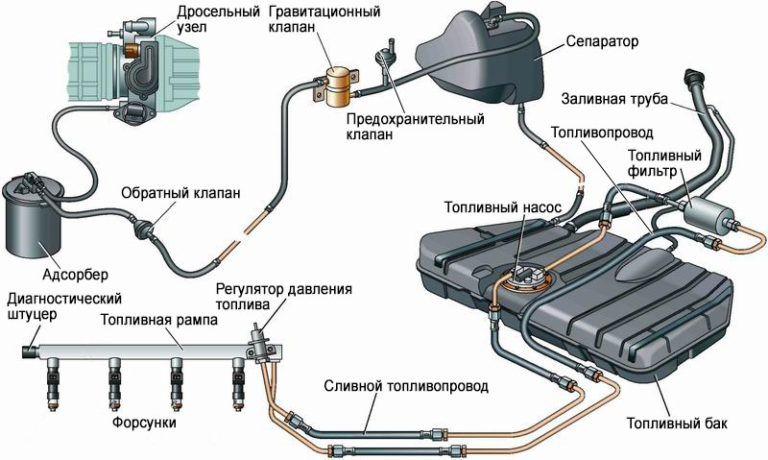
The fuel tank is designed to store fuel. As a rule, its volume provides a vehicle with approximately 500 km of mileage without refueling. When the ignition is turned on with an electrical displacement by means of a coarse cleaning filter, which is a piping mesh, enters the supply fuel line. Next, fuel passes through the filter, where it is cleared of mechanical impurities, and enters the ramp, and then by means of nozzles into the cylinders.
Pluses of gasoline engine
The advantages of using gasoline can be called almost every experienced motorist. After all, many of us perfectly know the design of our engine and can often replace many malfunctions. As a positive factor, it should be noted a large number of refills offering any motorist to acquire and pour gasoline of different brands at least to the tank, even in the canister.
Even if something breaks in the engine, it is very easy to find the nearest service serving gasoline power units. Most masters at large stations are distinguished by narrow specialization and extensive experience with various models of cars. Therefore, the repair is usually fast and high-quality.
It is believed that cars with gasoline engines are safer than those that apply liquefied gas as fuel. Although these problems, as a rule, occur during the installation of gas-cloth equipment in non-professionals.
In addition, drivers prefer gasoline engines as a result of their widespread. However, European concerns produce cars with gas equipment under the hood. The question is not relevant for them: gasoline or gas.
So, the main advantages of gasoline DVS are:
- Quiet work.
- Easy repair and maintenance.
- Low cost.
- Relatively low weight.
- Ability to develop large revs.
Minuses of gasoline engine
- Acute need for the use of exceptionally high-quality oils.
- High explosion and fire hazard, which is due to the specificity of fuel.
- Increased fuel consumption in high load conditions.
- Weak torque and weak pulls on low revs.
Gas in gasoline engine
Modern systems differ significantly from devices 5 or 10 years ago. In recent years, several generations of gas-tapping equipment have changed. The general one can allocate the lack of fuel pump, as the gas in the cylinder is already under pressure eight atmospheres. This is quite enough for self-powered fuel.
How to install a gas system on a gasoline engine
When installing a new fourth generation of gas-tapping equipment, the reducer connection is performed in the breaking of cooling systems, and the gas injector is carried out in the intake manifold. It is worth noting that in the aim of blocking the fuel supply, an additional electromagnetic valve was mounted.
There are no more structural changes with the vehicle. Therefore, the car can successfully enjoy both gas fuel and gasoline. If desired, the add-on can be painlessly dismantle and return the use of a monotocus mode.
Where you can install the gas system on the car
Do not try to save on the installation of the gas system on the car. It is necessary to contact in specialized service centers, where there are qualified specialists for the car, in order to avoid problems in the future.
Pros and cons install gas equipment on a car
Advantages of gas transition:
- Financial economy.
- An increase in the mileage without refueling almost twice.
- Clean exhaust gases than gasoline.
- Less Nagara.
- The oil retains its quality for a long time.
- Reducing the wear of the piston group due to the high-quality mixing of the mixture and uniform burning.
- Lack of detonation.
Disadvantages of gas transition:
- The car is deprived of warranty obligations (if he is new).
- Danger of fire. If the installation was performed by licensed specialists and with the help of branded components, the risk is minimized, but not to zero.
- It takes free space in the luggage compartment.
- The factory worship of the car changes.
Expert advice, what is better, gas or gasoline
Thus, considering all the factors listed above, it is possible to make an objective conclusion that gasoline and gas have both their shortcomings and advantages that distinguish between the expedient areas of their use. It is impossible to definitely say that it is better: gasoline or gas. Of course, if your car "is voracious" on gasoline and has a high average annual mileage, the transition to gas will be excellent output from the situation to reduce financial costs.
Related Materials
- Stove 2110, bad warm stove 2110, VAZ 2110 heating system, repairing the heating system VAZ 2110 with their own hands
- VAZ 2114 stove blows with cold air, stove 2114, bad warm stove VAZ 2114, device and repair of heating VAZ 2114 do-it-yourself, removing the stove VAZ 2114
- How to subdominize the car. How to put a jack. Types of jacks for cars.
- VAZ 2109 Fuse Block, VAZ 2109 Fuse Block Carburetor, VAZ 2109 Fuse Block Injector, Old VAZ 2109 Fuse Block, VAZ 2109 Fuse Block, VAZ Fuse Block 2109
- Car exhaust gas catalyst, faulty catalyst, pluses and cons of the catalyst, how to change the catalyst on the planeencitel
- Stove blowing cold air VAZ 2114, badly blowing the stove VAZ 2114, why badly blowing the stove VAZ 2114
- How to find out the owner of the car by the number of his car, check the car by the number of the traffic police machine, check the car by the state number of the car for free
- How to choose Used tires, Useful Tips
- Winter car road, pressure in passenger car tires in winter, good battery for the car in winter, whether to warm the car in winter
- In winter, the car is poorly started. How to make a car in winter, do you need to warm up the car in winter, useful tips
- Economy fuel consumption machines, the most economical car consumption
- Tires brands for passenger cars, labeling of car tire labeling, residual passenger car tire protector, how to pick a tire on a car brand, car tire tread pattern
- Working transmission operation, mechanical gearbox clutch work, driving with manual gearbox, useful tips
- Rear beam Peugeot 206 sedan, rear beam device Peugeot 206. Rear beam Peugeot 206 Malfunction, repair of the rear beam Peugeot 206
- Diesel fuel in winter, additive for diesel fuel in winter, how to choose the best diesel fuel
- Diesel winter does not start. How to start diesel in winter, heating diesel in winter.
- Japanese bridgestone tires, winter studded bridgestone tires, bridgestone tires brand
- Tire marking decoding for passenger cars, labeling wheels, how to choose the right tires on the disks
- Diesel engine in winter, launch of the diesel engine in winter, what oil to fill in a diesel engine in winter, useful tips
- LED backlight of the car, the backlight of the bottom of the car, the backlight of the legs in the car, the backlight in the door of the car, the backlight of the car is fine
- Recovered tires, bus tire, restored tire protector, can I use them
- Choose winter tires, which is a winter tires, which pressure in winter tires should be marked with winter tires, how to choose the right winter tires, the best winter tires 2019
- Steering rail rail, knock of steering rack, reasons for the knock and repair of the steering rack do it yourself
- Cameless car tires, a set for repair of tubeless tires, repair of the cannon-free tire do it yourself
- Russian tires, Russian tires Winter, Russian All-season tires, Voronezh AMTEL tires, Tires "Matador Omsk Tire", Kama-tires are world-class bus
- How to open a car without a key. Lost the key from the car what to do, the key from the car inside the car
- Silent tires, quiet winter tires, quiet studded bus, which tires to choose, overview tires
- Tires and safety, safety of the bus, why it is necessary to constantly monitor car tires
- Rules of safe driving of the car in the rain and slush, safe driving of the car for beginners
- Rust converter which is better for cars, rust converters to choose how to use rust transducer, professionals
- Polishing the body of the car do it yourself, how to choose a polishing paste, useful tips
- Engine durability, engine life, how to extend engine life
- Knock in the car. Knock when moving the car. What can knock in the car. How to determine the cause of the knock.
- ABS car, what is ABS car, ABS system malfunction, ABS diagnostics
- Overtaking a car when you can start overtaking a car, rules of traffic rules
- Fuel pump VAZ 2110, VAZ 2110 gas station scheme, VAZ 2110 fuel pump device, VAZ 2110 gas station repair,
- Automotive antennas for radio, automotive antenna device, car antenna do it yourself
- Front suspension Kalina, device front suspension Kalina, knock in front suspension Kalina, repair of front suspension Kalina
- Shock absorber Oil, best oil shock absorbers, pumping oil shock absorbers, how to properly pump oil shock absorber
- Clutch malfunctions, touches clutch, causes a clutch malfunction, how to eliminate
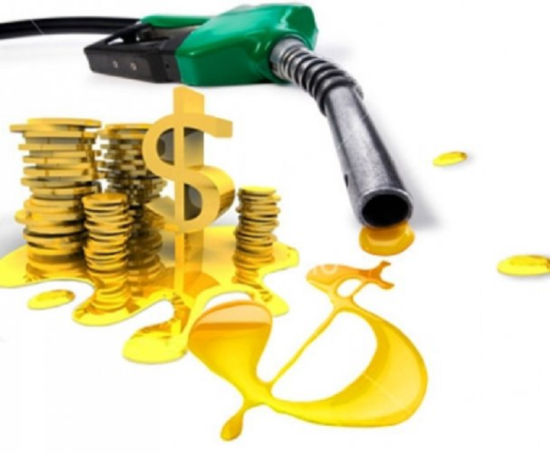













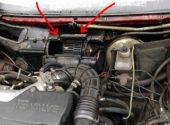
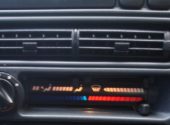


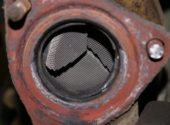
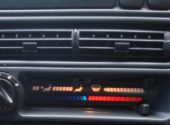
Comments